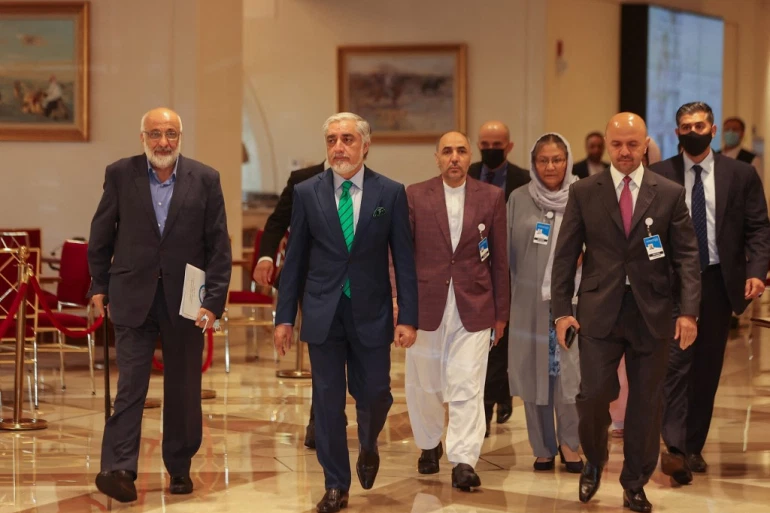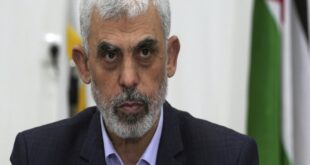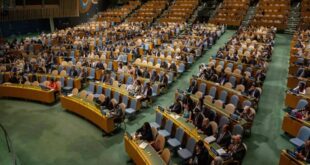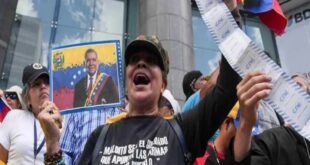
As the Afghan government and the Taliban continue their struggle over who will control Kabul, they ignore the fact that they will not wield any legitimacy unless the Afghan people grants it to them. The Afghan people are the sole sovereign over the country and as such, the power is in their hands.
The current Afghan administration and the Taliban should remember that, unlike in the Middle Ages, today, holding political power does not mean being a ruler but rather being a servant to the people. When it comes to all matters of the country, including war and peace, governance, resource exploitation, the final word belongs to the people.
During the past year, the talks between the Afghan government and the Taliban have stalled, as the civilian casualties have mounted, hundreds of thousands have been displaced, infrastructure has been destroyed, the economy has been suffering, and food production and supply have been disrupted by hostilities. This has put the lives of millions of citizens in serious jeopardy. This must stop now.
The Afghan people can clearly see that the government and the Taliban share a sense of indifference to the life, property and wellbeing of civilians. They demand that the warring sides prove their devotion to faith and patriotism by putting their trust in Allah Almighty and choosing peace over violence, the national interest over narrow individual and party interests. They demand that both sides acknowledge the inalienable right of the Afghan people to determine their own destiny.
By now, the United States, NATO, the international community, the people of Afghanistan, and the warring parties have realised that there is no military solution to the conflict. The continuation of war and relying on military means will only result in more bloodshed and violence. An immediate ceasefire should rank first among all priorities.
Without a political solution, peace-building, and reconciliation, the country will continue to suffer from economic underdevelopment, dysfunctional political infrastructure, factionalism, lawlessness, and rampant corruption.
After the signing of the Doha Agreement between the US and the Taliban, the Afghan people were hoping for speedy positive developments. After a year of non-substantive meetings between the government and the Taliban, the talks for an intra-Afghan peace agreement have stalled. It is evident that without third party mediation, the negotiating parties are unable to break the deadlock, overcome their differences, and move the peace process forward.
The deadlock in peace talks cannot be overcome unless the two sides are ready to sacrifice their narrow interests.
This was to be expected. The 25 years of animosity between warring factions, the losses each side has sustained, and the investment each side has made in military victory rather than in peace can produce no other outcome. No conflict of this severity has ever been resolved without the mediation of a neutral third party anywhere in the world.
One of the main sticking points is that the Taliban wants an interim authority to replace the government of President Ashraf Ghani and the immediate release of several thousand incarcerated Taliban combatants. The president and government officials, on the other hand, are concerned that such an unconstitutional change could trigger the collapse of the state and the dismantling of the Afghan security forces. Disagreement on the way forward has resulted in a deadlock.
This is where the Peace Mediation Team (PMT) can come in and lead the way out of this impasse. The PMT has arrived at a holistic approach to negotiations after extensive research and consultation with highly qualified conflict resolution experts, powerful tribal leaders, influential religious scholars, sources close to the Taliban movement, women and youth organisations, and human rights activists.
The PMT would like to advise the government of Afghanistan that it should be prepared to make sacrifices for the national interests and put an end to the devastating war that is causing senseless loss of life and misery.
The PMT would like to warn the Taliban movement that a collapse of the Afghan state will have dire consequences for Afghan citizens, and will inevitably result in chaos and economic ruin. If the Taliban returns to power by brute force rather than a peace process, it will likely face international isolation.
The members of the PMT are credible individuals with significant influence and reach who can convince the government of Afghanistan and the Taliban movement that the sensible way out of the current crisis is through a peace process owned and led by Afghans.
The PMT believes the agreement between the US and the Taliban signed on February 29, 2020, has created a window of opportunity for peace in Afghanistan following decades of military coups, Soviet occupation, civil strife, rigid rule by the Taliban, and the US’s “war on terrorism”. The Peace Agreement has also generated regional and international consensus to end the war through negotiations.
The PMT sees the regional and international support of the peace process for resolving the war in Afghanistan as essential. It hails the role the state of Qatar has played in the negotiation of the US-Taliban agreement and is grateful to Emir Sheikh Tamim bin Hamad Al Thani for facilitating the talks. It also calls on Pakistan to use its diplomatic influence over the Taliban movement to convince it to approach the peace talks in good faith.
Only with the help of regional and international actors, and with a true commitment to peace from the warring sides, can the current crisis be resolved and the stability and prosperity of Afghanistan secured.

Taj Ayubi Senior member of the Peace Mediation Team – Aljazeera




 World Opinions Débats De Société, Questions, Opinions et Tribunes.. La Voix Des Sans-Voix | Alternative Média
World Opinions Débats De Société, Questions, Opinions et Tribunes.. La Voix Des Sans-Voix | Alternative Média




